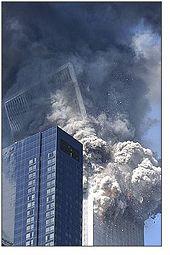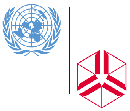|
Citizens of U.S., India now cite terrorism
as #1 national and international problem
 |
|
The leadership
survey was
conducted soon after the
World Trade Center attack. |
Citizens of the U.S. and India now rank terrorism as
the most pressing
problem of our time, according to a new survey by the United Nations
University Leadership Academy (UNU/LA).
The UNU / LA Global Leadership Survey, conducted by the Gallup Organization in September and October, found terrorism top ranked among
national and global concerns in both countries. One in three
Americans and 17 percent of Indians saw terrorism as the top national
problem while 26 percent of Americans and 44 percent of Indians saw
terrorism as the top global problem.
Among Americans, the five top ranked national problems were terrorism,
war,
personal safety, poverty and the economy. In India the five top ranked
national problems were terrorism, unemployment, poverty, over-population,
and the economy.
The survey reflects the impact of the September 11 assaults on New York
and Washington D.C. but not the December 13 storming of India's
Parliament. Citizens in both nations credited world leaders for their
efforts against terrorism and avoiding nuclear conflict. But on the
issues of 'basic human needs' such as food and water, housing and health,
they were not satisfied.
The U.S. and India results represent a test run for the UNU / LA Global
Leadership Survey (GLS), an effort to elicit opinion worldwide about the
nature of global problems early in the 21st century and the success with
which humanity, through its global and national leadership, is addressing
them. The goal is to ascertain the views of citizens and opinion-shapers
around the world on:
-
the impact of global problems on the individual
and how (s)he feels about life;
-
the extent to which 'global leadership' is
understood and legitimized;
-
the extent to which individual leaders are seen
to exhibit 'global leadership'; and
-
the extent to which these perceptions differ
between generations.
The sample size in each country: 1,000 citizens and
40 opinion-makers. The top 10 findings from the preliminary survey
are appended.
The survey found attributes such as strength of purpose, and even vision,
are important but rank behind the simple quality of honesty and integrity.
Dr. Kennedy Graham, Director of the UNU Leadership
Academy, said the findings "make it clear that the 'invisible'
virtues are what the people of the world want in their leadership on
global issues".
For a copy of the preliminary findings: UNU / LA, PO Box 13236, Amman
11942, Jordan.
The top 10 findings of the 2001 Global
Leadership Survey:
-
The most powerful and the second
most populous countries of the world share the perception that
terrorism is the main global problem of our time, and the main problem
attending their nation.
-
Longer-term environmental problems
such as global warming rank below the more immediate threats of
national and personal security.
-
Corruption is also a major global
problem, and both Americans and Indians agree that 'honesty' and
'integrity' are the chief characteristics demanded of future
leadership.
-
While the cardinal 'national
values' of Americans and Indians are quite different and distinctive,
opinion tends to merge together when it comes to perceptions of
prescribed 'global values'.
-
When it comes to identifying
'global leaders', both societies tend to perceive matters through
nationalistic lenses.
-
UN Secretary-General Kofi Annan is
recognised by both Americans and Indians as one of the top five
'global leaders'. But while a plurality of Indians see him as
speaking for humanity, most Americans reject this.
-
Most Americans and Indians rated
as only 'fair' the efforts of the global leadership in combating the
longer-term problems of 'basic human needs' and environmental
problems. A higher rating was accorded them for their efforts at
combating terrorism and nuclear conflict.
-
Despite the myriad of global
problems surrounding them, both Americans and Indians are generally
satisfied with their lot and optimistic about their future.
-
A small majority of Americans and
Indians thought that the future generation of leaders would do a
better job at tackling global problems.
-
Nearly two-thirds of Americans see
themselves individually as leaders while only one-quarter of Indians
do.
|

